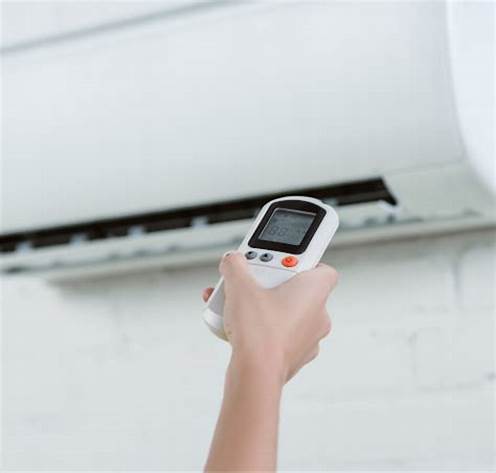
Many homeowners in Port St. Lucie rely on air conditioners to stay comfortable during the hot and humid months. While these systems are effective at cooling indoor spaces, a common question arises: Do air conditioners actually bring fresh air from outside into the home? Understanding how air conditioners work and how they impact indoor air quality can help you make informed decisions about your HVAC system.
How Standard Air Conditioners Work
Most residential air conditioners are designed to circulate and cool indoor air rather than bring in fresh air from the outside. The system pulls warm air from inside your home through return vents, passes it over a cold evaporator coil, and then distributes the cooled air back through supply vents. During this process, the air is dehumidified, which helps maintain a comfortable environment in humid climates like Florida.
The key point is that the air being cooled is already inside your home. Standard air conditioners do not actively draw in outside air unless the system has a dedicated ventilation component or an integrated fresh air intake. This means the air inside your home is mostly recirculated, which can affect air quality if proper filtration and maintenance are not in place.
The Role of Filtration in Indoor Air Quality
Even though standard air conditioners do not bring in outside air, they do play a role in improving indoor air quality through filtration. Air filters trap dust, pollen, pet dander, and other airborne particles as the air passes through the system. High-efficiency filters can capture even smaller particles, reducing allergens and improving overall comfort.
However, filters need regular maintenance. Dirty or clogged filters can reduce airflow, strain the system, and even allow contaminants to circulate. Replacing or cleaning filters according to the manufacturer’s guidelines is essential for keeping the air in your home clean and your HVAC system running efficiently.
Ventilation Options for Bringing in Fresh Air
If fresh air is a priority, there are HVAC solutions designed to introduce outdoor air while still providing cooling. One option is a dedicated fresh air intake, which allows controlled amounts of outdoor air to enter the system. This air is often filtered and conditioned before being distributed throughout the home.
Another option is an energy recovery ventilator (ERV) or heat recovery ventilator (HRV). These systems exchange stale indoor air for fresh outdoor air while recovering energy from the outgoing air. This method helps maintain comfortable temperatures and humidity levels while improving indoor air quality. These solutions are particularly beneficial in tightly sealed modern homes where natural ventilation is limited.
Humidity and Air Quality Considerations
Florida’s climate presents unique challenges for indoor air quality. High humidity can promote mold growth, musty odors, and discomfort. Air conditioners help reduce humidity, which indirectly improves air quality. However, without proper ventilation, indoor air can become stagnant, and pollutants can accumulate over time.
Maintaining a balance between cooling, dehumidification, and ventilation is key. Using exhaust fans in kitchens and bathrooms, opening windows when outdoor conditions allow, and incorporating fresh air ventilation systems can all contribute to a healthier indoor environment.
Signs Your Indoor Air May Need Improvement
Even with an air conditioner, indoor air quality may sometimes suffer. Common indicators include:
-
Persistent odors or mustiness
-
Excessive dust accumulation
-
Frequent allergy symptoms among household members
-
Mold or mildew growth
If you notice these signs, it may be time to evaluate your HVAC system, upgrade your air filters, or consider adding a ventilation solution that brings in fresh air. Regular professional inspections can identify issues early and ensure your system is working effectively.
The Importance of Regular HVAC Maintenance
Proper maintenance is crucial for both cooling efficiency and air quality. Scheduling annual or biannual service with a licensed HVAC technician can prevent problems before they become serious. Maintenance typically includes cleaning coils, checking refrigerant levels, inspecting ductwork, and replacing or cleaning filters. Well-maintained systems run more efficiently, last longer, and support healthier indoor air.
Practical Tips for Improving Indoor Air
Even without specialized ventilation equipment, homeowners can take steps to enhance indoor air quality. Consider the following:
-
Change air filters regularly according to manufacturer recommendations.
-
Clean supply and return vents to prevent dust buildup.
-
Use exhaust fans in kitchens and bathrooms to remove moisture and odors.
-
Keep windows and doors closed during high pollen seasons to reduce allergens.
-
Consider adding portable air purifiers in high-use areas.
Combining these measures with proper HVAC operation can make a noticeable difference in indoor air comfort and quality.
Conclusion
Standard air conditioners primarily circulate and cool indoor air rather than bringing in fresh air from outside. While they help remove heat and humidity, they do not automatically provide the benefits of outdoor ventilation. Proper filtration, regular maintenance, and supplemental ventilation systems can improve indoor air quality and ensure a healthier living environment.
For homeowners in Port St. Lucie, understanding how your air conditioner impacts the air you breathe is essential. By taking steps to maintain your system and considering solutions that introduce fresh air, you can enjoy both comfort and cleaner indoor air throughout the year. Regular inspections and professional guidance from licensed HVAC technicians ensure your system is optimized for efficiency, comfort, and health.